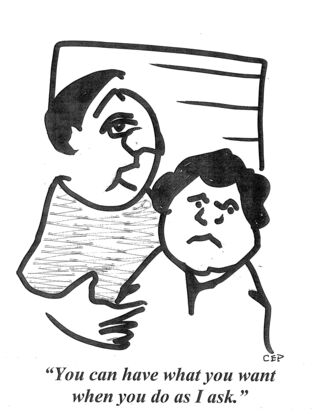Sport and Competition
Talking With Adolescents About the Importance of Competition
Pursuing opportunities, winning, and losing is a game everyone must play.
Posted November 7, 2022 Reviewed by Vanessa Lancaster
Key points
- Parents often freely provide for a young child, while the growing adolescent must increasingly compete to win or earn what they want in life.
- Competition serves many psychological needs of the growing adolescent, from striving hard to achieving objectives.
- Competing for opportunity and advancement is an essential life skill for independence.

If childhood is the age of social innocence (when much that is wanted is freely provided), adolescence is the onset of social reality (when more of what is wanted must be earned or won.)
As the young person grows, getting what one wants in life becomes increasingly competitive.
Competition in Athletics
While in early elementary school, athletics were all-inclusive, purely recreational, simply played for the healthy fun of it, when entering middle school, secondary school sports become more selective and competitive.
Now you choose to join, commit to practice, contest against other teams, and compete for playing time. Although still fun, athletic play now becomes more intense, serious, and demanding.
The most common symbol of athletic competition is the ball because “ball” sports are most of what young people play. Such a versatile object is a ball! You can throw it, catch it, kick it, block it, pitch it, hit it, shoot it, serve it, carry it, steal it, run it, pass it, for example. There are so many sporting ways to manipulate a ball!
And in the process of participating in these ball games, there is much about commitment (working to improve), cooperation (working with others), composure (working for self-control), and competition (working to win) that this athletic competition has to teach.
Competition in Academics
As for academics, while in early grades, the same entry curriculum was taught to all; at some point, ability tracking based on academic performance begins as more advanced material is provided for higher achievers.
And now, academic performance can influence instructional treatment.
Classroom education is partly a grading system. Students must compete with each other to do well, understanding how on any given test, not everyone will get an ‘A.’ Then, as they grow older, secondary students understand how school performance is associated with future educational and occupational opportunities.
Competition in Life
At the end of adolescence, it’s a socially challenging world young people enter, one that becomes seriously competitive when as young adults, they must strive to make their independent way alongside others who are also striving to do the same.
Now competition has become an important life skill that young people must depend upon in many ways. Consider a few.
- Competition can be for survival: getting enough.
- Competition can be for control: establishing dominance.
- Competition can be for inclusion: obtaining membership.
- Competition can be for opportunity: earning a chance.
- Competition can be for excellence: elevating performance.
- Competition can be for winning: beating the opposition.
- Competition can be for enjoyment: the pleasure of play.
- Competition can be for advancement: getting ahead.
- Competition can be for ambition: setting goals.
- Competition can be for motivation: inspiring effort.
- Competition can be for arousal: stimulating excitement.
Competition can serve many purposes.
Feeling Competitive
Of course, young people vary in how comfortably competitive they are, how much they like to compete, and what they are willing to compete for. However, because the willingness to contend for opportunity in a challenging world is an essential life skill, on balance, it’s worth parental encouragement. “If getting to do this truly interests or matters to you, we support you giving it a competitive try.”
Societal competition is not a good or a bad; it’s a complicated reality. And the older a young person grows, the more pressing and complex it becomes. It’s a serious game to engage in because, come the end of adolescence, the ability to compete plays an important role in securing and advancing their independence in adulthood.
What Parents Might Say
So: what to say about competition to your teenager. Perhaps start with something like this:
To make your way and get your way in the world, those opportunities you want, others will often want too. So there will be competition for who gets or gets to do what. To enter the competition takes trying, and trying is no guarantee of success. However, if you don’t play, you can’t win; and if you do play, you won’t win all the time.
Although risking disappointment when losing, you will still gain valuable knowledge and experience. Losses are always instructive (teaching what to do differently or better the next time), while determination and confidence can grow from making the attempt. Then there is regret: if you don’t try, you will never know, and you may always wonder.
You only get one trip through life, so consider leading it the best you can. Competition is about taking chances, and life is always chancy. However, the importance of engaging in the competition is not just in achieving the outcome you desire. When you engage, you dare to hope.
While competition can create the possibility of sometimes winning and sometimes losing, it's always about something more. As you try, you affirm the person you are and the importance of going after what you want. That's really the point.




